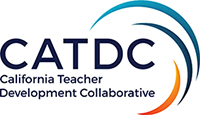Summer School: Gearing Up for Teaching Foundations 2017

We’re well into the 21st Century, and the buzzwords of a new era are part of our daily lexicon now: project-based learning, design thinking, differentiation, personalization. And as the culture of learning has changed in this century, so has the definition of teacher. Whereas once upon a very long time ago, it was okay (I’m actually not sure this was ever okay) to pontificate in front of a room of captive youth, now we must be so much more for our students—most notably, the ones who live with the paradox of being the expert who can say, “I don’t know;” the culture creators and co-creators alongside our students; the social-emotional gurus who can nudge, encourage, and set clear boundaries; the facilitators of a learning process whose planning makes classroom interactions look seamless. It’s an incredible time to be a teacher.
As the Los Angeles and San Francisco Teaching Foundations teams convene to plan our summers, we engage in deep conversations about the “must haves” for today’s teachers: What are the questions we want teachers to ask? What are the tools we want teachers to come away with? How do we answer the question about what it means to be a teacher today?
And as we plan our work, we’d like to make some snippets of our thinking transparent. In our view, today’s teachers need to consider the following:
Identity and Cultural Responsiveness
Parker Palmer writes about teaching who we are, and we believe this notion is central to the role of teacher. Equally important is knowing who our students are and what comprises their identities so that we may best serve their needs. Both the work of understanding self and our students allows us to create a classroom community that is inclusive and thriving.
Co-creating/Maintaining Classroom Culture
Classrooms are dynamic spaces, and the difference of one student can have a significant impact on how students and teachers work with one another. The outdated trope of “don’t smile until Christmas” has been turned on its head, and we have come to realize it’s better to co-create expectations and classroom values—and actively work to maintain these values—from the first day of class.
Careful lesson design
While teaching certainly has its intuitive elements, and while there is indeed an art to the work, teachers need a range of tools to draw upon to meet the needs of diverse learners. If we work with the assumption that we all learn differently, then teachers have to consider multiple ways in for their students and plan for a series of learning opportunities in their classroom spaces. For a teacher to shift from the front of the room to the facilitator’s role, good planning is key.
Openness to growth and feedback
In the world of “likes” and the culture of commentary on everything from restaurant reviews to responses to Twitter feeds, feedback is central to how we move in the world—and the more immediate the feedback, the better our ability to pivot towards growth. Today’s teachers need to recognize that feedback serves to benefit everyone and that while some forms of feedback may be more challenging than others, if we can sort all feedback in service of growth, our students will have a more optimal learning experience.
As Teaching Foundation’s facilitators, we recognize that so much goes into the work of being a teacher, and by providing the sorts of questions and tools that allow our teachers the right kind of ramp and entry into the school year, we hope this year’s cohorts will have a successful year in the classroom.
 Lori Cohen: Lori Cohen is the Dean of Faculty at the Bay School of San Francisco. Prior to her current position, Lori taught Humanities, Literature, and Religion/Philosophy at Bay for many years. Lori also coordinates Teacher Development seminars, in-house professional development, for Bay faculty and has begun a Teaching Fellows program that will be entering its third year. This will be Lori’s fourth year as a co-facilitator/teacher leader in Teaching Foundations, a program that brings her joy and professional rejuvenation.
Lori Cohen: Lori Cohen is the Dean of Faculty at the Bay School of San Francisco. Prior to her current position, Lori taught Humanities, Literature, and Religion/Philosophy at Bay for many years. Lori also coordinates Teacher Development seminars, in-house professional development, for Bay faculty and has begun a Teaching Fellows program that will be entering its third year. This will be Lori’s fourth year as a co-facilitator/teacher leader in Teaching Foundations, a program that brings her joy and professional rejuvenation.
